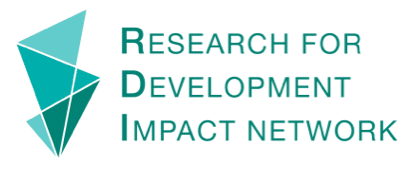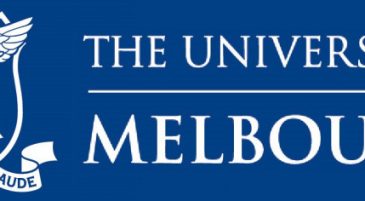*New start time of 3:30pm and new location*
Join RDI Network, the ANU College of Asia and the Pacific, and the Australian Research Management Society (ARMS) as we explore Partnerships under the UN Sustainable Development Goals (SDG) 17. The afternoon networking session will open with a panel (to be announced) before networking over a late afternoon tea.
SDG 17 aims to: Strengthen the means of implementation and revitalize the global partnership for sustainable development. This event will bring particular focus or “Partnerships for the Goals” bringing particular attention to Item 17.16 and 17.17.
17.16 Enhance the Global Partnership for Sustainable Development, complemented by multi stakeholder partnerships that mobilize and share knowledge, expertise, technology and financial resources, to support the achievement of the Sustainable Development Goals in all countries, in particular developing countries.
17.17 Encourage and promote effective public, public/private and civil society partnerships, building on the experience and resourcing strategies of partnerships.
Universities across Australia are increasingly appointing roles from business development to strategic partnerships that are instrumental in how Australia as a nation will respond to international priorities. By understanding how our work can enable the SDGs and leveraging our networks we can improve outcomes at all levels.
Please extend this invitation to anyone who may be interested, should be interested or likes to talk in acronyms.
(and why are SDGs important? This year Times Higher Education University Impact Rankings were released – they are the only global performance tables that assess universities against the United Nations’ Sustainable Development Goals. SDGs allow universities to assess how they are helping change the future of the world.)
PANEL
Louisa Minney
UNAA Board Secretary
Louisa is a Special Advisory Consultant with over 20 years experience in strategic change management and evaluation, with expertise in the international and security sectors.
Louisa founded her career through work in disaster relief (crisis response) and supportive work for developing nations. Louisa has worked with the United Nations World Food Programme in China and more recently, consulted to the Australian Civil Military Centre where she designed the Australian Interagency Preparedness Framework to enhance whole-of-government capacity to respond to crises. Louisa has worked with a UNFPA Inter-Agency Working Group drafting coordination policies for sexual and reproductive health response in crises. Louisa is currently working with the Asian Development Bank, the Asia Pacific Economic Cooperation, and Fairtrade Australia and New Zealand to develop initiatives that increase economic participation and employment opportunities, in particular for women and girls.
Louisa is an Officer in the Australian Army Reserve and provides service on diversity and inclusion, and women, peace and security to the Vice Chief of the Defence Group and the Peace Operations Training Centre. Louisa is also on the Board of Australia Business Volunteers and an elected member of the International Development Contractors Australia Executive Committee. Louisa was nominated as a participant in Australia’s future security and prosperity in a rapidly changing region and world panel for the 2020 Australia Summit.
Fabia Pryor
Sustainability Manager, KeepCup
Fabia heads up global partnerships, responsible business and advocacy at KeepCup.
Since launching the world’s first barista-standard reusable cup 10 years ago, KeepCup is now embraced all over the world and reusers divert millions of single-use cups daily. KeepCup is a campaign supported by a product and works with industry, councils, universities and communities to reduce single-use waste and drive reuse.
Fabia came to KeepCup following a successful career as an international sustainability educator and consultant who believes in revolutionising industry to better support people and the planet. For more than a decade, she has worked with brands and creatives around the world to boost sustainability in supply chains and to champion corporate social responsibility in the fashion industry.
Dr Cate Rogers
Assistant Secretary, Development Policy and Education Branch, Department of Foreign Affairs and Trade
Cate Rogers is the Assistant Secretary of Development Policy and Education Branch in the Department of Foreign Affairs and Trade (DFAT). In this role she leads teams working on education, disability, poverty and social protection, knowledge management and development policy. Cate commenced at the Australian Agency for International Development (AusAID) in 1994 and has held a range of roles in AusAID and DFAT. Cate served in Indonesia during the Asian Financial Crisis and subsequently helped develop Australia’s first economic governance programs with Indonesia. Over 2006-2010 she led evaluations in the Office of Development Effectiveness. Cate led Australia’s work on international taxation and infrastructure finance for the Development Working Group of the G20 during Australia’s presidency in 2014. Cate completed a PhD in Economics at Australian National University in 2016, her research is on poverty, risk and informal insurance in remote Papua New Guinea..
Dr Larissa Schneider
Founder and convenor, Mercury Australia
Dr Schneider is the founder and convenor of Mercury Australia, a research network that unites researchers investigating the historical and contemporary uses and impacts of mercury and their implications for regulation and governance in the Southern Hemisphere, with special emphasis in the Asia and the Pacific.
Her research interest focuses on advancement of our knowledge of the historical uses and contemporary sources of mercury in the Southern Hemisphere, with particular attention given to Australia to ratifying the international Minamata Convention and complying with this treaty
Professor Sally Wheeler OBE MRIA FAcSS FAAL
Pro Vice-Chancellor (International Strategy)
As Pro Vice-Chancellor (International Strategy), Professor Wheeler is responsible for the development and implementation of the academically-led international strategy for the Australian National University (ANU). Working closely with the Vice-President (Engagement & Global Relations), the International Strategy & Partnerships office and colleagues across the University, the PVC provides leadership to the University’s strategic engagement with global partners.
Professor Wheeler joined the University as the Dean of the ANU College of Law in early 2018, a role she continues to hold. Sally divides her time between the ANU College of Law and her role as Pro Vice-Chancellor (International Strategy).



